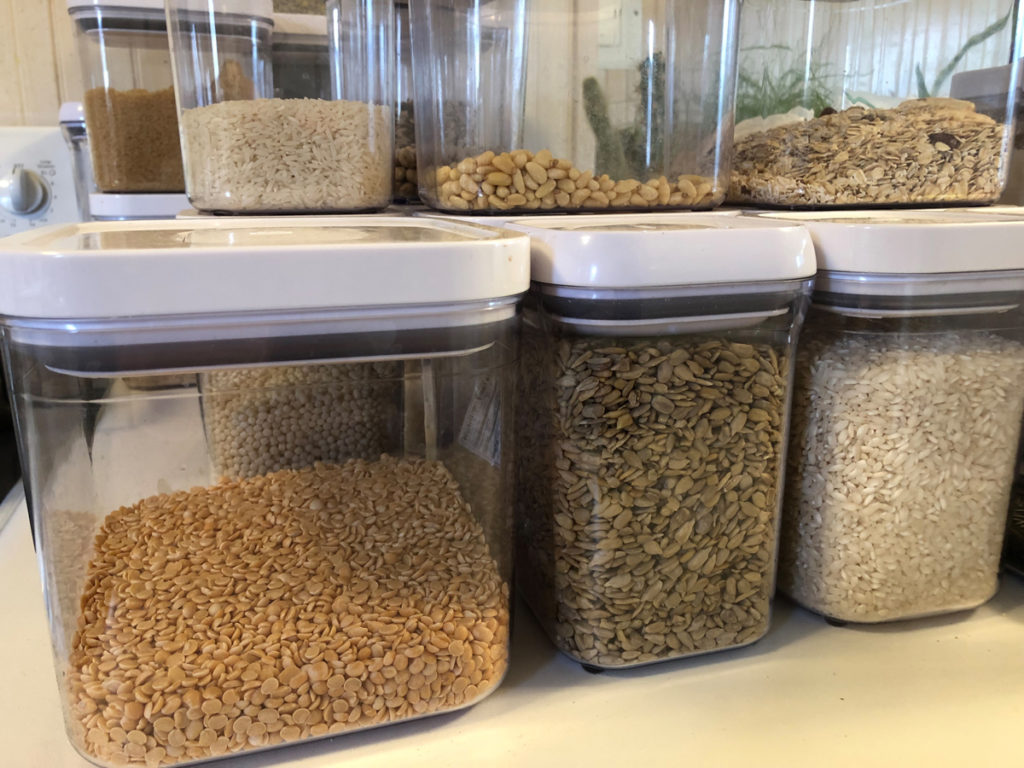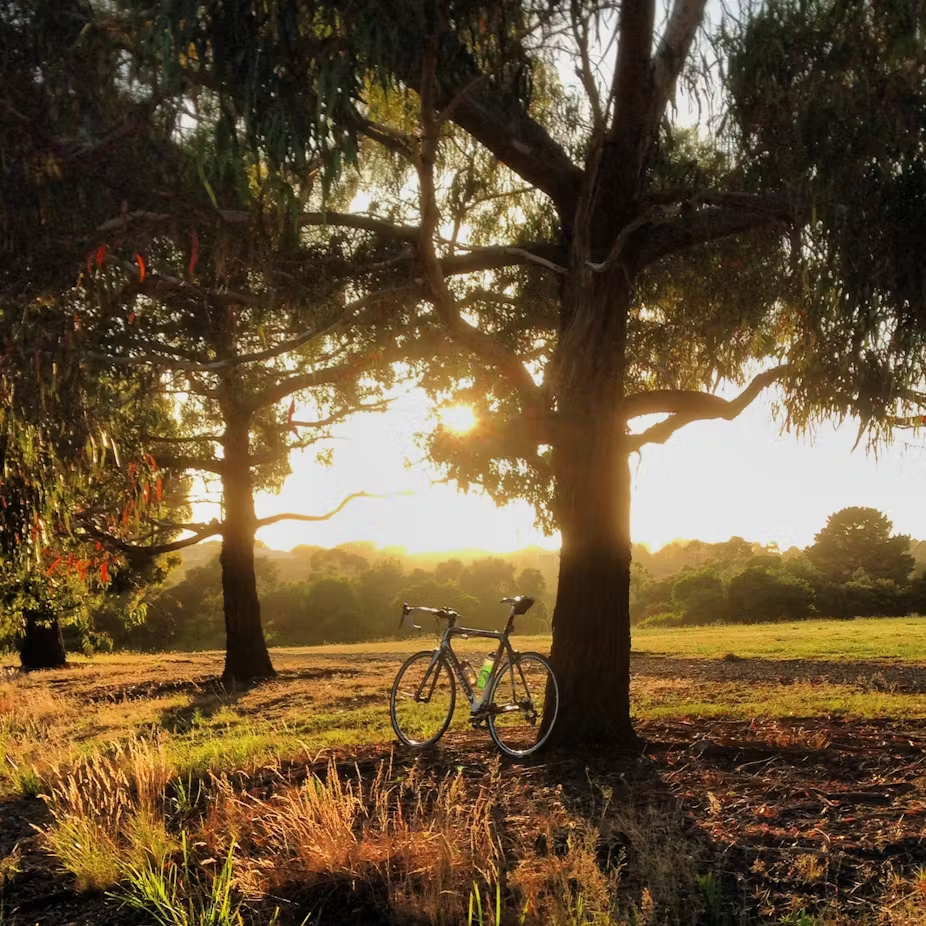Cyclists’ training has always included riding their bikes often and a lot. In the 1990s cyclists started using performance supplements as basic as Power Bars to electrolytes. Today every bicycle shop has an array of nutrition supplements including electrolyte tablets, carbohydrate gels, gummy-type drops or chews, energy and protein bars, oxygen enhancers, vitamins, carbohydrate mixes for use during exercise, and protein mixes for recovery, all of which are designed to enhance performance. While their effectiveness is well-known, many athletes prefer more natural nutrition.

Many supplements, especially carbohydrates used for energy while exercising, have long been plant-based. Protein supplements, on the other hand, have been more often made from animal-based proteins such as whey or eggs. For years, vegetarian or vegan athletes were considered to be at a disadvantage, because it was felt they could not get the protein they needed to build strength and recover from strenuous efforts from purely plant-based sources.
In recent years, more plant-based protein supplements have been developed and stocked at vitamin and grocery stores. This, along with the rise of veganism stemming from the environmental and animal advocacy movement, has led to an increase in in the number vegan athletes not only in endurance sports, but traditional “strength” sports, such as professional football, weightlifting, and MMA. No sports have seen as drastic an increase in the number of vegan athletes as trail running and cycling, both road and mountain biking. I am assuming, but do not have any concrete data to back it up, is that these athletes are generally more concerned with the environment than those who practice their sports in indoor or urban settings.
At the end of September 2019, a ground-breaking documentary came out on this topic. The Game Changers has since become the most purchased documentary in iTunes history, and has prompted many professional athletes to change their diet.
I interviewed many vegan cyclists, asking them what they like to eat and their most common response was “Everything.” What is everything? Greek food, Ethiopian food, Indian food, Thai food, Vietnamese food, Mexican food, American food, Italian food, and even raw food. Salt Lake City, Utah, where I live, is a vegan haven with over fifteen fully-vegan restaurants, such as Veggie House, Vegan Bowl, Seasons, Zest, Monkeywrench, Bolt Cutters, Buds, Mark of the Beastro, and Vertical Diner to name a few. We even have a vegan donut shop, Big-O Donuts.
Ryan Borrowman, is a seasoned nationally competitive sponsored triathlete, who says that after he finishes a race in the Salt Lake area, he loves eating pancakes at Vertical Diner.
I asked Cristiano Pereira, the owner of Cranky’s Bike Shop who is vegan, what his favorite vegan nutrient is and he told me, “I have really liked a lot of the Hammer nutrition products.” I also asked Cristiano what his favorite food was and he said,“real food,” such as fruits vegetables, grains, and nuts rather than processed food.
I went on to ask Cristiano what the benefits of being vegan are for a cyclist. He responded, “Being vegan helps as the diet is less acidic, and that helps my body recover faster and in turn lets me stack hard work outs closer to each other. Also, a vegan diet is cleaner and by having cleaner fuel, I burn cleaner and longer.”
Eric Deardorff, a competitive national-level cyclist, mentioned that he “takes B-12 three-times a week, but nothing else.” He added that if he was racing professionally again, he would use Hammer Nutrition.
Ryan “Turbo” Barrett, a NCCA All-American road cyclist and a very popular road cyclist in the Salt Lake area, said, “Going vegan helped me manage my weight. I’m pretty lean by nature, but after going vegan, I dropped five to ten pounds off my weight that I’d added in my forties, I’m back close to the weight I raced at in my twenties.”
Ryan also explained that, “I recover much faster. I am usually less sore and more recovered than what my coach expects given her experience with non-vegan athletes.”Stephanie Shew, another long-time nationally-competitive cyclist and triathlete based in Salt Lake City, explained that being plant-based allowed her to, “recover more quickly, and I don’t have to worry about stomach issues nearly as much compared to when I wasn’t plant-based.”
Plant-based vegan protein powders, such as Vega, Orgain, Garden of Life, Plant Protein, and Sunwarrior, are now readily available at big-box stores like Costco to national chain stores like GNC. Many of these supplements are non-GMO and organic. Sunwarrior and Vega only produce only vegan products. Garden of Life Sport is a plant-based pre-workout and recovery supplement with 30 grams of protein, the most of any vegan protein powders.
When asked what supplements she uses while riding, Shew replied, “I usually use Tailwind, Skratch, Picky Bars, Probars, and UCAN. I also use rice a lot as a way to have ‘real’ food during a ride.”
Barrett indicated that his supplements are, “Vega, Gnarly and FNX protein powders. During his rides, he uses, UCAN, TailWind, Skratch Labs, Picky Bars and ProBar.”
Global Cycling Network (GCN), a popular media outlet that provides the cycling world with education, news, and expertise, is now promoting vegan cycling on their website, YouTube, Instagram, and Facebook channels. In November 2019, GCN also released their book, The Plant-Based Cyclist, by acclaimed WorldTour nutritionist Nigel Mitch, which is described as, “your accessible, complete and practical 244-page guide to plant-powered cycling – complete with 23 great tasting and easy to make recipes for on and off the bike.” This book may be the first on the topic, but will definitely not be the last.
I definitely recommend watching The Game Changers and trying a plant-based diet. Stephanie Shew leaves us with this advice: “Like I’m sure you have heard before, everyone is different, so what works for me may not work for you. Test all your nutrition out before you race.”
In conclusion, Barrett states, “If you want to be at the top of your game you have to think about your nutrition regardless of dietary choices, but a clean and natural plant-based diet simply makes the most sense. The only thing I have ever had to worry about is getting enough calories. Eat, eat, and eat some more.”









I stopped eating meat and poultry 46 years ago when I was a professional drummer. After a month of adjustment , I felt more alert, faster, and had greater endurance. It carried over into bike racing, where I had good success. Now, at 73, I still cycle and drum, my weight is the same as 50 years ago, and I feel as if I’m cheating old age. I don’t preach, but going meatless worked for me. YMMV.
Being a vegan I love reading about other vegan athletes. I also use some of the hammer products, but be careful as their BCAA’s are made with duck feathers. Very much not vegan and we found out after we called and inquired about what they are made with. Took them 2 weeks to get back to us. If the ingredients aren’t listed I assume they are not vegan…
[…] Cycling on a Plant-Based Diet […]
Comments are closed.